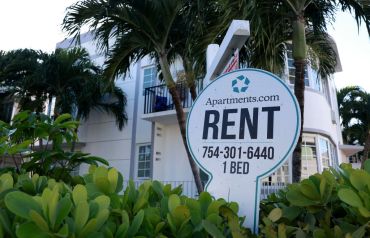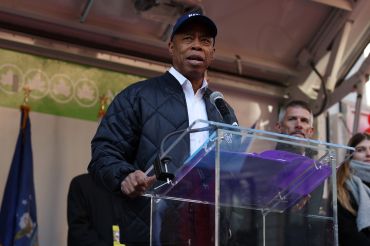Once upon a time in America, hard work was lauded. Having the opportunity to work hard and achieve was a formula for happiness, a builder of self-confidence, a booster shot for self-esteem. providing a comforting reminder that if one worked hard, you would have a great chance for success. Hairstylist Vidal Sassoon is credited with saying, “Success comes before work only in the dictionary.” Work ethic was at the core of the American dream.
In these pages, I am often critical of elected officials (on both sides of the aisle, I should add) serving on a city, state and federal level. I am often amused by political spin. For political purposes, a silver lining can be extracted from even the direst circumstances. After all, in last Friday’s January jobs report, even if only one job were added, someone would say, “We remain moving in the right direction.”
Last Friday’s report announced that the U.S. added 113,000 nonfarm jobs in January, well below the 185,000 the consensus expected. The December number was adjusted upward by only 1,000 jobs to a paltry 75,000. No matter how you look at these numbers, they stink.
Throughout 2012, the average job growth was 183,000 per month, and last year, that average climbed to 194,000. Most economists deem 2013’s August to November period, which averaged 219,000 added jobs, “good” in terms of job creation, even though that growth rate was well below the averages seen in recoveries past. In fact, after the recession in the early 1980s, job creation exceeded 1 million per month for long periods, and that was at a time when the U.S. population counted about 100 million fewer people than it does today.
The unemployment rate inched down in January from 6.7 percent to 6.6 percent, the lowest it has been since October 2008. For commercial real estate market participants, this number is getting “dangerously” close to 6.5 percent, the rate the Fed has always pointed toward as the level at which it would eliminate its easy money policy. This would certainly exert upward pressure on interest rates, an inevitable occurrence that we would like to see delayed as long as possible, notwithstanding the negative implications for our economic future. (As I have stated many times, it should be noted that the unemployment rate is a poor proxy for the health of our labor market; the number of jobs created is a much better gauge.) Fortunately, Fed officials have recently gone out of their way to refer to the 6.5 percent rate as a “threshold” rather than a “trigger.”
Last Friday’s report also revealed that the participation rate (the percentage of working-age Americans who are in the work force), increased from 62.8 percent to 63 percent. While remaining near a 35-year low, this increase was seemingly positive. But it was most likely the result of long-term federal jobless benefits expiring for more than 1 million Americans in December. Does this mean that folks who receive these benefits are not encouraged to look for work? That appears to be the case.
Last July, officials in North Carolina ended unemployment benefits for a large swath of the state’s population, and by December the North Carolina unemployment rate dropped by 2.0 percent, much better than the 0.6 percent drop seen nationally. Did this surprise anyone in Washington? It shouldn’t have. A 2008 study co-authored by President Barack Obama’s former chief economist, Alan Krueger, found that “earnest job search is inversely related to the generosity of unemployment benefits.” The conclusion one can draw from this is that, increasingly, people are content to sit home and doze on the couch in front of the TV rather than go work.
The current administration seems to be O.K. with that. Recently, the nonpartisan Congressional Budget Office revealed the fourth big lie about Obamacare. The first was that you could keep your plan if you liked it. The second was that the plan would reduce the deficit. The third was that the cost of health care coverage would go down. Now we know the fourth: Obamacare will create jobs. The CBO report shows that the interrelationship between taxes and subsidies in the law “creates a disincentive for people to work.” The report predicts that the equivalent of about 2.5 million jobs will be lost.
Moreover, the report indicates the plan will incentivize people to work fewer hours and earn less money in order to hold onto generous subsidies. In fact, it goes on to say that the incentives are so big at the lowest income levels that they make it unaffordable to work more. Can supporters really argue that taking able-bodied workers out of the economy is good for wages, growth or wealth creation?
When faced with the report, White House Press Secretary Jay Carney proudly proclaimed that Americans can more freely determine how they work or if they will work now that “job-lock” (getting a job just to get health benefits) will be muted. This anti-job, pro-dependency slant is bad for America. It creates increasing friction between those who believe in the virtues of work and those who believe in an entitlement society and wealth redistribution. I believe that very few among us don’t support the government helping those who are truly in need. The question is: Is the government overreaching?
Are we really devolving into a society in which, some say, half of us are working for a living and half are voting for a living? Is creating jobs a priority for Congress or is it more of a priority to give away free stuff in order to win more votes?
Carved into the cypress wood mantle in Henry Ford’s home is the saying, “Chop your own wood, and it will warm you twice.” Cheers to that!


